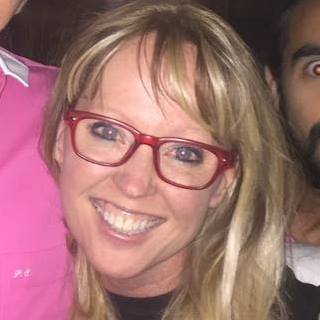The importance of quality sleep is no secret. When we forgo it, our body produces stress hormones to get us through the day, and we often supplement these with stimulants like caffeine and sugar.
According to Executive Director for The American Institute of Stress Heidi Hanna, relying on stress hormones and stimulants to power through can “trigger inflammation, causing excess wear and tear on our arteries, over stimulating our nervous system,” and can eventually result in issues like heart attacks, strokes, depression or anxiety.
Working sixteen hour days fuelled by caffeine, adrenaline and cutthroat ambition is thankfully not a thing anymore. It’s 2019 now, and for most of us, those days have gone the way of the Amazon Fire Phone. Trends are shifting toward embracing the restorative power of sleep at all ages, and entrepreneurs are even innovating new brands of sleepwear to help us reconnect to our full potential.
The best of upcoming sleep tech was on display recently at CES, the year’s biggest expo for tech gadgets. Digital Trends selected the Philips snoring relief band, called the SmartSleep, as one of their top picks from this year’s event. The increasing popularity of sleep-centered wellness has its roots in solid science. And the implications go even farther than stress, depression and anxiety.
Getting on the Slow Wave
Science Daily just published findings by the Washington University School of Medicine which show a connection between a lack of quality sleep and the development of Alzheimer’s. In deep sleep you shift into slow brain waves, and it’s only after this slow-wave sleep that your brain has been able to process memories and you can wake up feeling refreshed.
Sleep that skimps on quality can have adverse effects. Researchers found that elderly test subjects getting less slow-wave sleep were building up more tau proteins in the brain, putting them on the path to brain deterioration. Brains affected by Alzheimer’s have large tangles of tau proteins, where a healthy brain does not.
Even for subjects who slept a lot and took daytime naps were developing tau proteins upstairs, if they weren’t sleeping in full, restful, slow-wave sleep. The key factor wasn’t how long they slept, but how deeply.
The research show new promise in our ability to catch Alzheimer’s before it starts, and to take preventative measures. It also shows that deep, good quality, slow-wave sleep is part of nurturing long term brain health.
How do You Know the Quality of Your Sleep?
If you’re wondering how to find out the quality of your own sleep patterns, you’re not alone. And the tech wizards at CES had some handy options.
Beddr, for example, debuted the SleepTuner, which sticks right on your forehead. It measures the quality of sleep you’re getting and notes any issues interfering with your rest. While it might feel strange to wear this at night, it’s comparable to running an expensive clinical sleep trial, and it can help combat dangerous conditions like sleep apnea. So, pretty well worth it.
The Muse Softband is a similar forehead wearable, but connects to Amazon’s Alexa to play you guided meditations as you drift off. Once you’re asleep, it automatically switches off the audio and starts measuring your sleep quality. You wake up to a full report.
Also introduced at CES this year was a Digital Detox platform by a company called Seraphin. The platform doubles down on initiatives recently taken by Apple and Google to help mobile users regulate screen time and boost wellness. It includes sleep timers, digital curfews, a daily detox report, ambient sounds, sleep quality monitors, and personal tips for health and wellness.
Sleep Tech Goes Deeper at CES 2019
The SmartSleep, which won Digital Trend’s pick for best new sleep tech of CES 2019, also helps deepen the quality of your sleep, but it isn’t for you to wear—it’s for your partner. The chest strap measures snoring, and gently vibrates to encourage a change of position. If unheeded, it vibrates at intervals with increasing firmness, but is still quiet enough not to wake anyone in bed.
With sleep this central to CES this year, it’s clear that the geniuses and disruptors of tech engineering have jumped on the slow wave. And there’s continuous new sleep research to support their innovations. But let’s be honest—the research is only confirming what we know from our own experience. Poor sleep takes a long term toll, and quality sleep, far from being a luxury, is indispensable to success.


